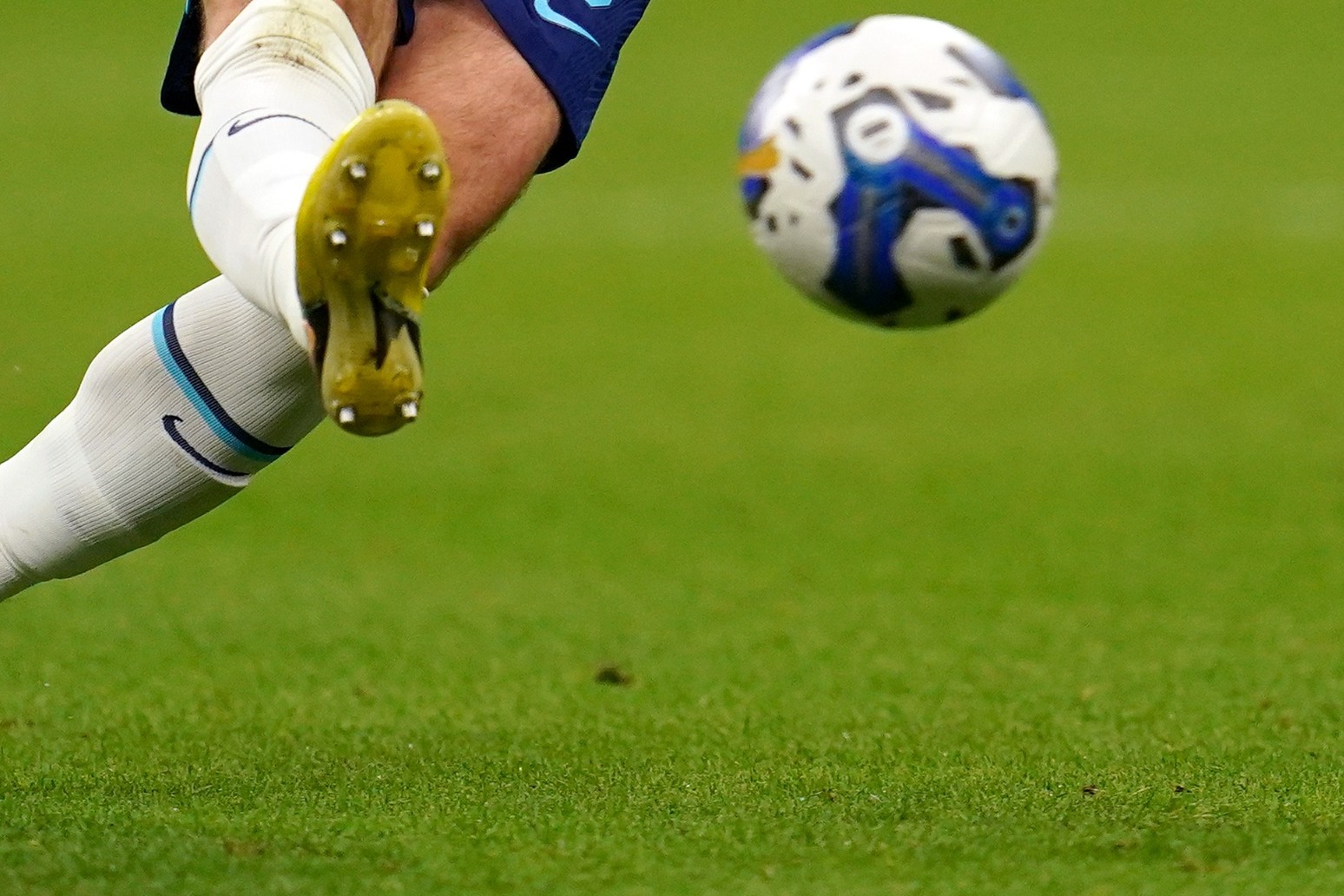
Even a brief session of heading a football immediately alters brain function and the way the brain communicates with the muscles around it, a new study has shown.
Participants who headed 20 footballs in succession did not improve their performance on a cognitive task with practice, whereas a control group who performed headers in virtual reality did.
The heading impacts therefore appeared to impair the ability to improve performance on this task, the study by academics at Manchester Metropolitan University’s Institute of Sport which has been shared exclusively with the PA news agency found.
The participants who headed real footballs in the study also displayed a pattern of brain activity during a handgrip task that might indicate the brain was working harder to control their movements relative to participants who headed virtual footballs.
The impact of repetitive heading and exposure to concussion is being closely examined in the sport after the 2019 FIELD study found footballers were three and a half times more likely to die of neurodegenerative disease than age-matched members of the population.
Further data released from the same study in 2021 showed while a goalkeeper’s risk was no different from the general population, an outfield player’s risk was four times greater, increasing to five times greater among defenders, where head injuries and heading the ball are most prevalent.
The Football Association is currently trialling a ban on deliberate heading in under-12s football, and has imposed guidelines advising against any heading in training for the same age groups. There are also limits on heading in place for older age groups in youth football and even restrictions on heading in training in the adult grassroots and elite game.
The Manchester Metropolitan University study, called ‘Soccer heading immediately alters brain function and brain-muscle communication’ and which has been published in the Frontiers in Human Neuroscience journal, took 60 participants in total and split them into a group of 30 heading real footballs and another group of the same size wearing VR headsets.
Each group was asked to complete the King-Devick test to measure cognitive performance before and after the exercise and undergo a neurophysiological assessment before and after the heading task.
The ‘real’ heading group self-reported an array of symptoms commonly associated with concussion after the exercise. While the VR group completed the King-Devick test faster post-exercise than they did before it, there was no improvement in speed post-test in the real heading group, who also made more errors second time around, indicating an impairment to cognitive function.
Both groups demonstrated improved movement control post-test, contrary to previous research that indicated repetitive heading could impair motor performance.
However, the data from electroencephalography (EEG) tests suggested the activity underpinning the VR group’s movement control was fundamentally different to the real heading group. Neurophysiological activity in the VR group was consistent with neural efficiency, whereby the brain learns to perform a task with less effort in response to practice. The real heading group showed no such activity.
The study suggested this indicated “an acute bout of heading interferes with efficiency-related neurophysiological adaptations or induces a compensatory state that requires increased cognitive effort to maintain task performance”.
Heading was found to induce hyperconnectivity between brain and the surrounding muscle.
Other studies have shown evidence of increased connectivity between brain regions in individuals with a mild traumatic brain injury (mTBI) and those in the acute phase of concussion.
The study text states: “It is proposed that this hyperconnectivity represents the brain’s natural repair response to injury.”
The authors conclude that while these heading-induced changes to brain function might reflect a compensatory response to head impact and/or fundamental changes to corticomuscular activity, any interpretation remains speculative until further work is carried out.
Dr Johnny Parr, lecturer in sport psychology at the Manchester Metropolitan University Institute of Sport, said: “Our findings show that heading a football clearly induces some immediate changes to brain function, and how our brain and muscles communicate.
“But, at this point, it’s still unclear what this altered activity represents.
“For example, it could be that heading required participants to work harder or invest greater cognitive effort in order to compensate for some deficit in the brains ability to process information.
“Or it could be that the altered activity reflects the need to manage the concussive symptoms that people experience as a result of the heading protocol.
“It’s also possible that some of our findings could be explained by additional physiological changes that we didn’t measure – and this is something we are researching further.
“But what we have done is shown that there is this an immediate effect and that must now be explored further.
“More work is needed to determine how long these alterations in brain function last following heading, and whether these short-term impacts can tell us anything meaningful about longer-term brain health and the risk of neurodegenerative disease.”
Published: by Radio NewsHub

